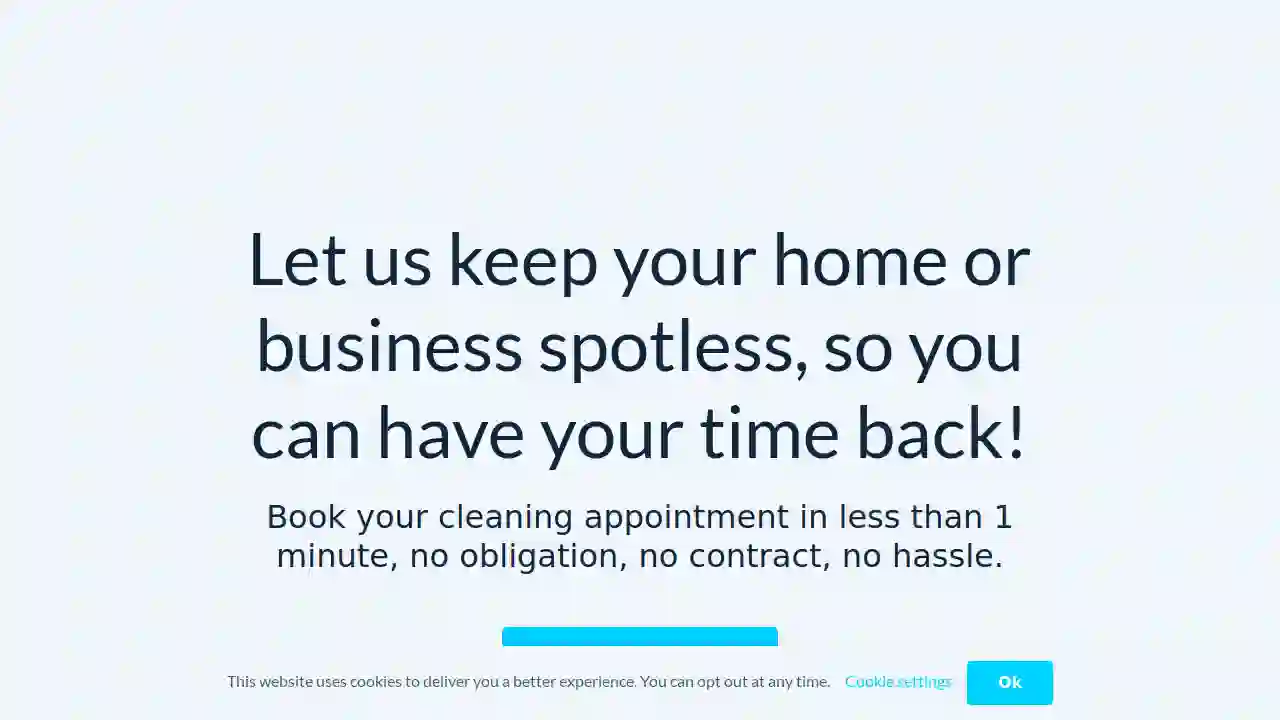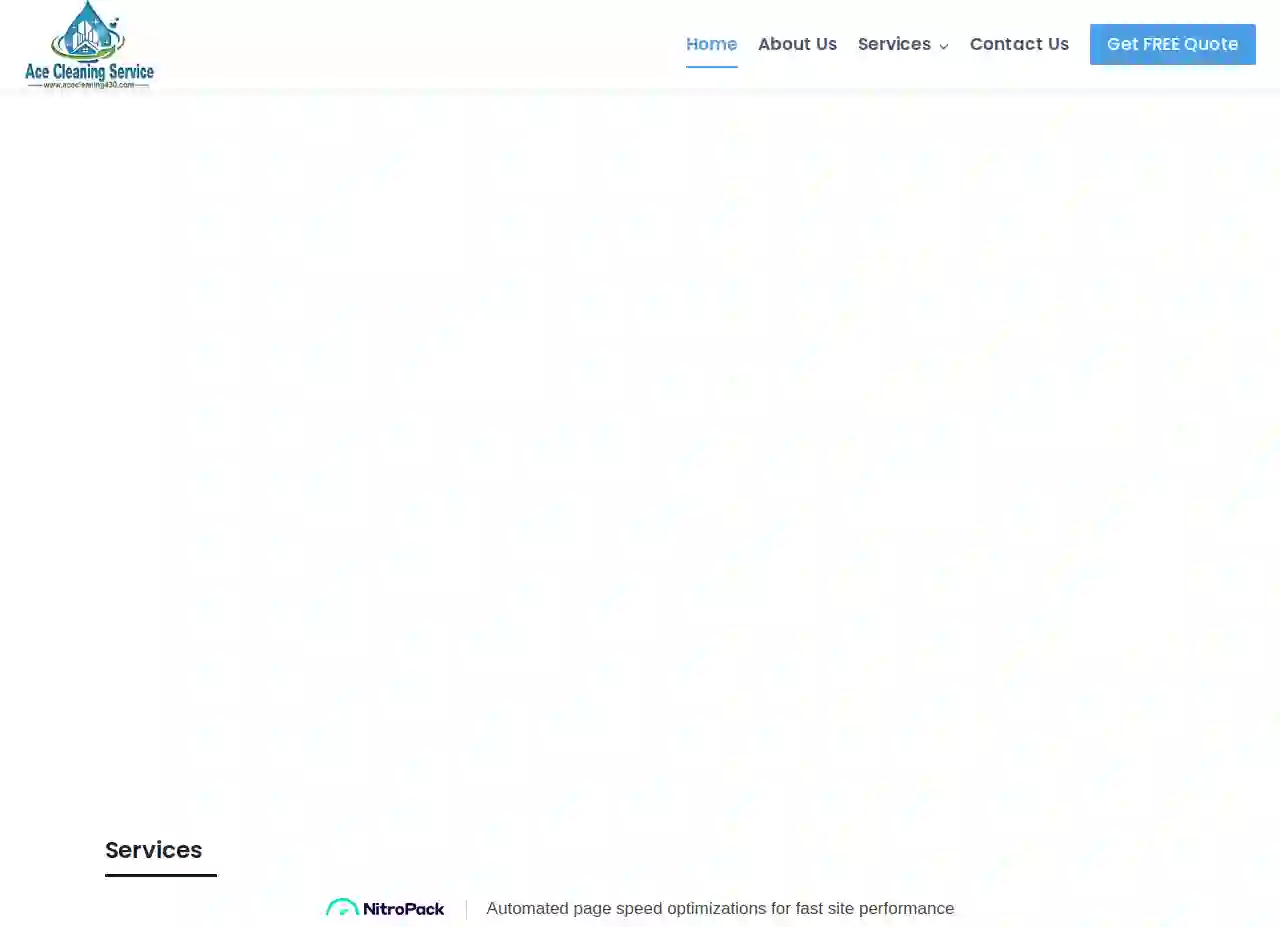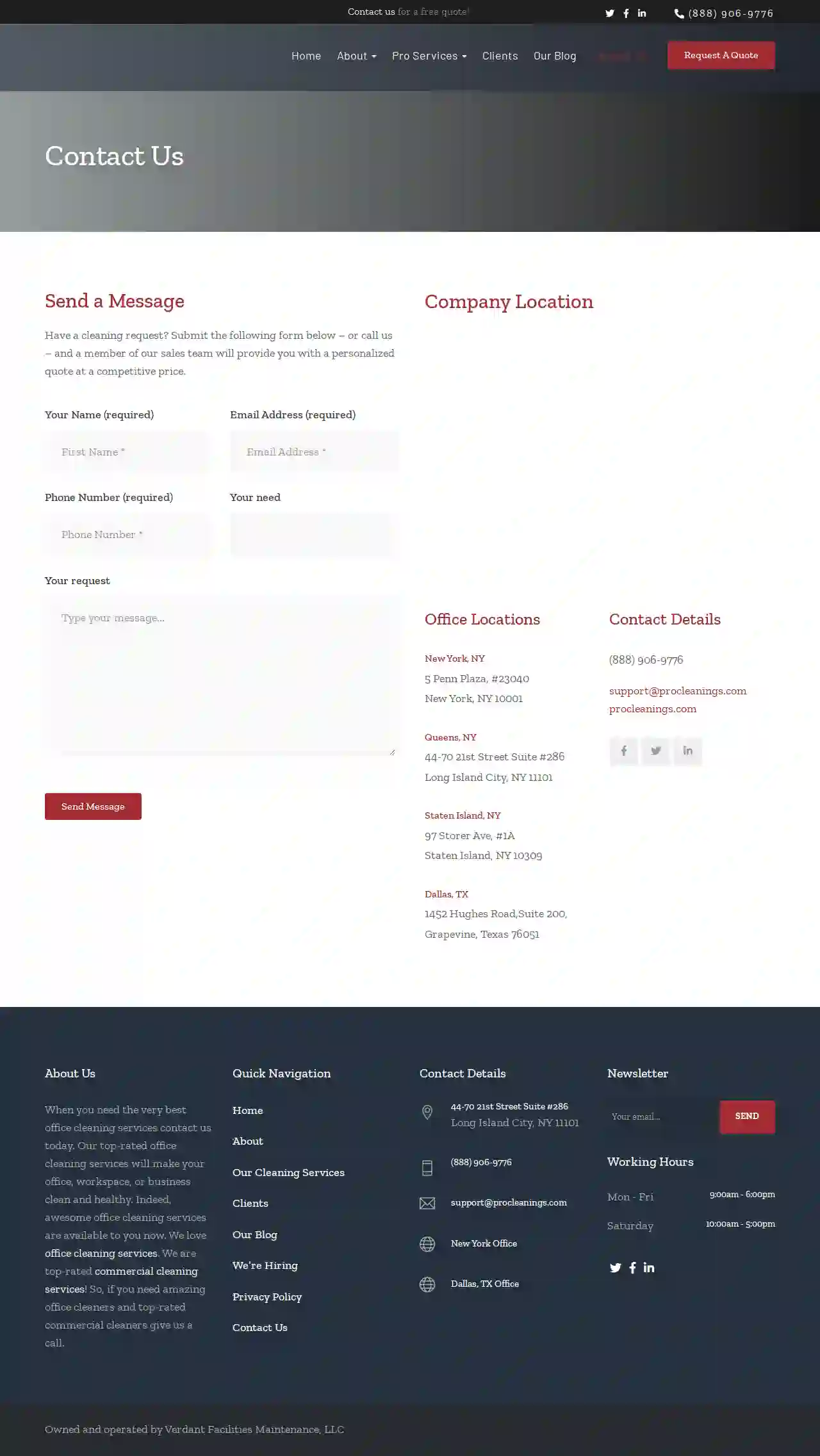Cleaning Services New Cassel
Find top House Cleaning in New Cassel
Get up to 3 House Cleaning quotes for your project today! Compare profiles, reviews, accreditations, portfolio, etc... and choose the best deal.

A1 Janitorial Cleaning Service
516 reviewsQueens, US- Services
- Why Us?
- Gallery
Get Quote
Paradise Business Cleaning
57 reviewsStaten Island, US- Services
- Why Us?
- Gallery
Get Quote
NEW B CLEANING LLC
58 reviewsQueens, US- Services
- Why Us?
- Gallery
Get Quote
Quality Cleaning
52 reviews123 Main St, New York, 10001, USAt Quality Cleaning NY, we pride ourselves on providing top-notch cleaning services to homes and businesses in the New York area. Our team of experienced professionals is dedicated to delivering exceptional results, ensuring your space is not only clean but also sanitized and organized. With a focus on customer satisfaction, we strive to build long-lasting relationships with our clients. Whether you need a one-time deep clean or regular maintenance cleaning, we've got you covered.
- Services
- Why Us?
- Accreditations
- Our Team
- Testimonials
Get Quote
JAN-PRO Cleaning & Disinfecting in Central Missouri
43 reviewsQueens, US- Services
- Why Us?
Get Quote
Ace Cleaning Service
4.213 reviewsBuffalo, US- Services
- Why Us?
Get Quote
Hotel Cleanup Queens
55 reviewsQueens, US- Services
- Why Us?
Get Quote
LM12 Cleaning Services
534 reviewsBrooklyn, US- Services
- Why Us?
Get Quote
ProCleanings - Office Cleaning Service
53 reviewsQueens, US- Services
- Why Us?
Get Quote
Executive Cleaning Services
515 reviewsSyracuse, US- Services
- Why Us?
Get Quote
Over 60,241+ Janitorial Services on our directory
Our janitorial contractors operate in New Cassel and beyond!
CleaningMatch has curated and vetted Top Cleaning Contractors in and around New Cassel. Find a trustworthy business today.
Frequently Asked Questions About Cleaning Services
- Regular Sweeping or Dust Mopping: Sweep or dust mop hardwood floors daily to remove dust, dirt, and debris.
- Vacuuming: Vacuum hardwood floors weekly using a vacuum cleaner with a hardwood floor attachment to avoid scratches.
- Damp Mopping: Damp mop hardwood floors with a hardwood floor cleaner as needed. Avoid excessive water, as it can damage the wood.
- Prevent Scratches: Place felt pads under furniture legs to prevent scratches. Avoid dragging heavy objects across the floor.
- Avoid Harsh Cleaners: Do not use harsh chemicals, abrasive cleaners, or furniture polish on hardwood floors.
- Professional Cleaning: Consider hiring a professional hardwood floor cleaning service for deep cleaning and refinishing as needed.
- Experience and a proven track record: Choose companies with a solid history of providing quality cleaning services.
- Positive customer reviews and testimonials: Check online reviews and ratings to gauge customer satisfaction.
- Licensed and insured professionals: Ensure the company has the necessary licenses and insurance to protect you from liability.
- Clear and transparent pricing: Obtain detailed quotes and compare prices from multiple companies.
- Good communication and responsiveness: Choose a company that communicates clearly, responds promptly, and addresses your concerns.
- Weekly: Suitable for busy households with children or pets, ensuring a consistently clean and healthy environment.
- Bi-weekly: A good option for smaller households or those who maintain a relatively clean home.
- Monthly: May be sufficient for individuals or couples who live a minimalist lifestyle.
- Quarterly or Annually: Can be suitable for deep cleaning or seasonal cleaning tasks.
- Type of cleaning: Deep cleaning, regular cleaning, move-in/move-out cleaning, and specialized cleaning (e.g., carpet cleaning) have different price points.
- Size of the property: Larger properties typically require more time and resources, resulting in higher costs.
- Frequency of cleaning: Regular cleaning schedules often have discounted rates compared to one-time services.
- Location: Cleaning costs can differ based on regional labor costs and demand.
- Additional services: Extra tasks, such as window cleaning, laundry, or organization, will add to the overall price.
What are some tips for cleaning hardwood floors?
By following these tips, you can keep your hardwood floors looking beautiful for years to come.
How do I find a good cleaning service?
Utilize online directories like CleaningMatch to find and compare qualified cleaning services in your area.
How often should I have my house cleaned?
You can adjust the frequency based on your needs and budget. Some people opt for weekly cleaning for high-traffic areas like kitchens and bathrooms and bi-weekly cleaning for the rest of the house.
How much do cleaning services cost in the USA?
To get accurate pricing, request personalized quotes from reputable cleaning services on CleaningMatch. They will assess your specific needs and provide a tailored cost estimate.
What are some tips for cleaning hardwood floors?
- Regular Sweeping or Dust Mopping: Sweep or dust mop hardwood floors daily to remove dust, dirt, and debris.
- Vacuuming: Vacuum hardwood floors weekly using a vacuum cleaner with a hardwood floor attachment to avoid scratches.
- Damp Mopping: Damp mop hardwood floors with a hardwood floor cleaner as needed. Avoid excessive water, as it can damage the wood.
- Prevent Scratches: Place felt pads under furniture legs to prevent scratches. Avoid dragging heavy objects across the floor.
- Avoid Harsh Cleaners: Do not use harsh chemicals, abrasive cleaners, or furniture polish on hardwood floors.
- Professional Cleaning: Consider hiring a professional hardwood floor cleaning service for deep cleaning and refinishing as needed.
By following these tips, you can keep your hardwood floors looking beautiful for years to come.
How do I find a good cleaning service?
- Experience and a proven track record: Choose companies with a solid history of providing quality cleaning services.
- Positive customer reviews and testimonials: Check online reviews and ratings to gauge customer satisfaction.
- Licensed and insured professionals: Ensure the company has the necessary licenses and insurance to protect you from liability.
- Clear and transparent pricing: Obtain detailed quotes and compare prices from multiple companies.
- Good communication and responsiveness: Choose a company that communicates clearly, responds promptly, and addresses your concerns.
Utilize online directories like CleaningMatch to find and compare qualified cleaning services in your area.
How often should I have my house cleaned?
- Weekly: Suitable for busy households with children or pets, ensuring a consistently clean and healthy environment.
- Bi-weekly: A good option for smaller households or those who maintain a relatively clean home.
- Monthly: May be sufficient for individuals or couples who live a minimalist lifestyle.
- Quarterly or Annually: Can be suitable for deep cleaning or seasonal cleaning tasks.
You can adjust the frequency based on your needs and budget. Some people opt for weekly cleaning for high-traffic areas like kitchens and bathrooms and bi-weekly cleaning for the rest of the house.
How much do cleaning services cost in the USA?
- Type of cleaning: Deep cleaning, regular cleaning, move-in/move-out cleaning, and specialized cleaning (e.g., carpet cleaning) have different price points.
- Size of the property: Larger properties typically require more time and resources, resulting in higher costs.
- Frequency of cleaning: Regular cleaning schedules often have discounted rates compared to one-time services.
- Location: Cleaning costs can differ based on regional labor costs and demand.
- Additional services: Extra tasks, such as window cleaning, laundry, or organization, will add to the overall price.
To get accurate pricing, request personalized quotes from reputable cleaning services on CleaningMatch. They will assess your specific needs and provide a tailored cost estimate.